Improve counting skills Easy Math Worksheets for Ages 3-6
5 filtered results
-
From - To
Enhance your child's counting abilities with our engaging Easy Math Worksheets designed specifically for ages 3-6. These educational resources provide a fun and interactive way for young learners to practice essential counting skills. Through colorful activities and exercises, children will gain confidence as they count objects, recognize number patterns, and solve simple math problems. Our worksheets are expertly crafted to capture the attention of young minds while promoting foundational math skills vital for future learning. Perfect for home or classroom use, these worksheets ensure that counting becomes an enjoyable experience for every budding mathematician. Start building early numeracy skills today!
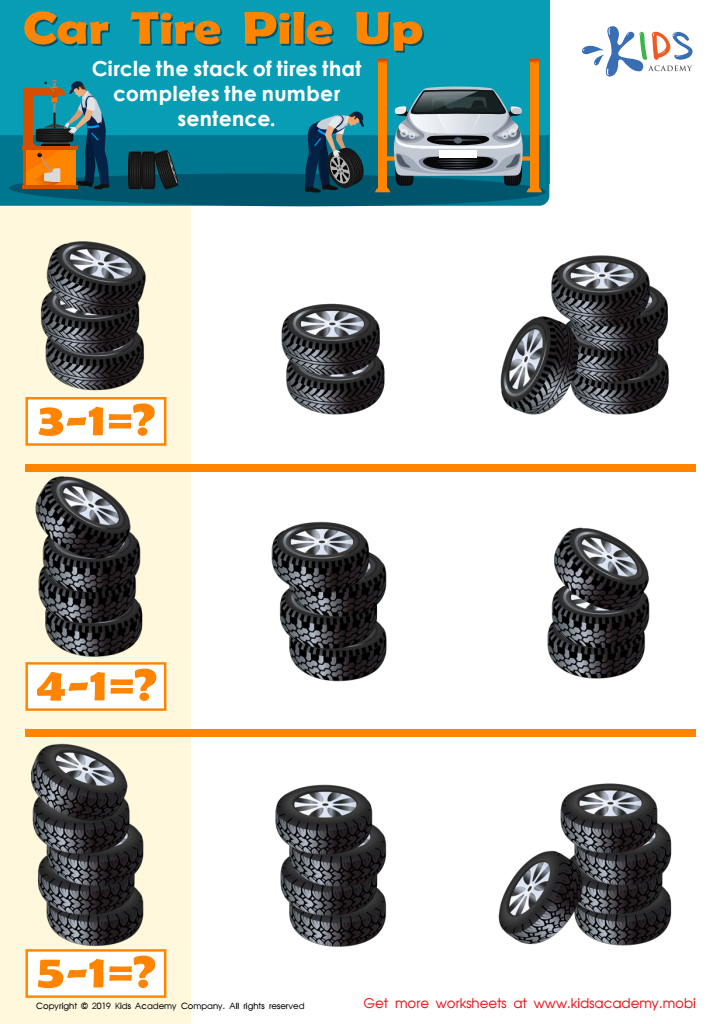

Car Tire Pile Up Worksheet
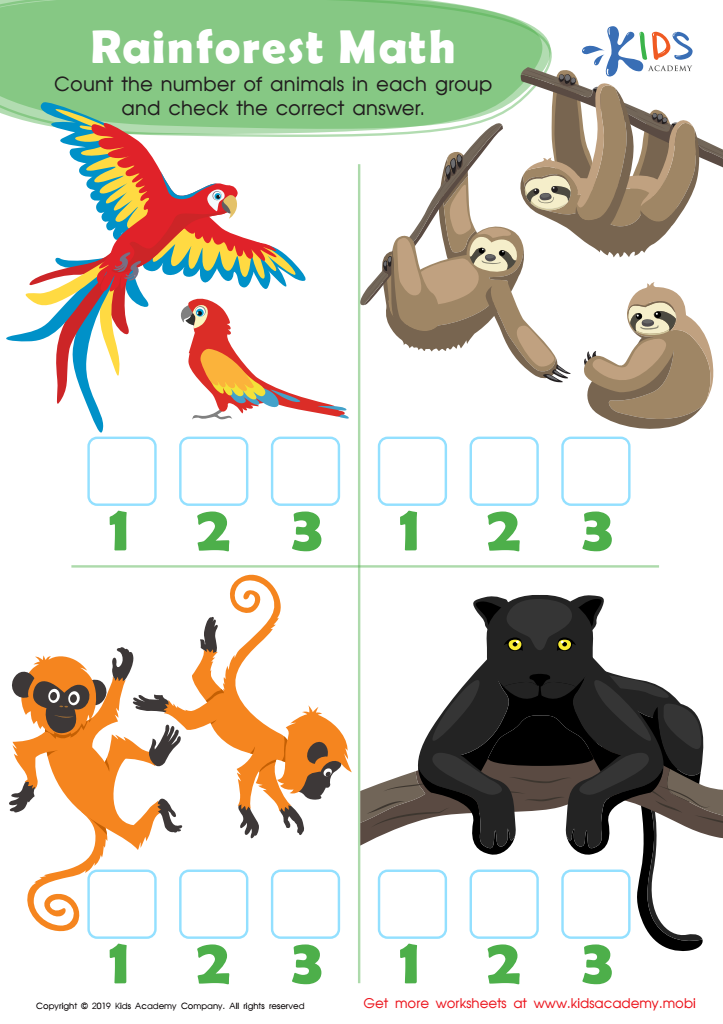

Rainforest Math Worksheet
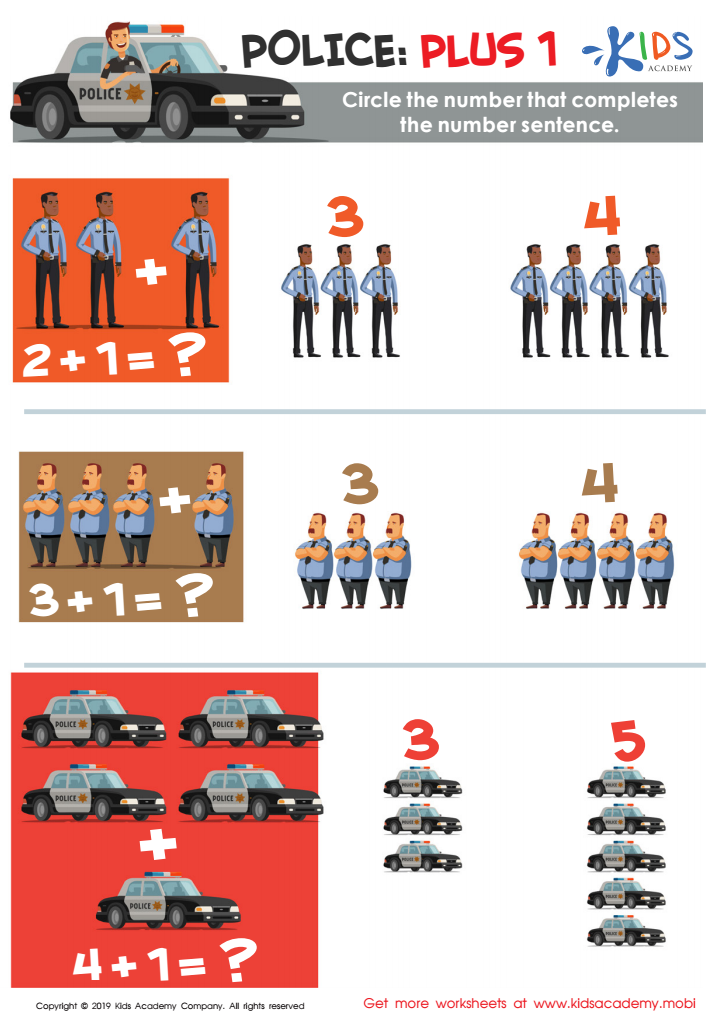

Police: Plus 1 Worksheet
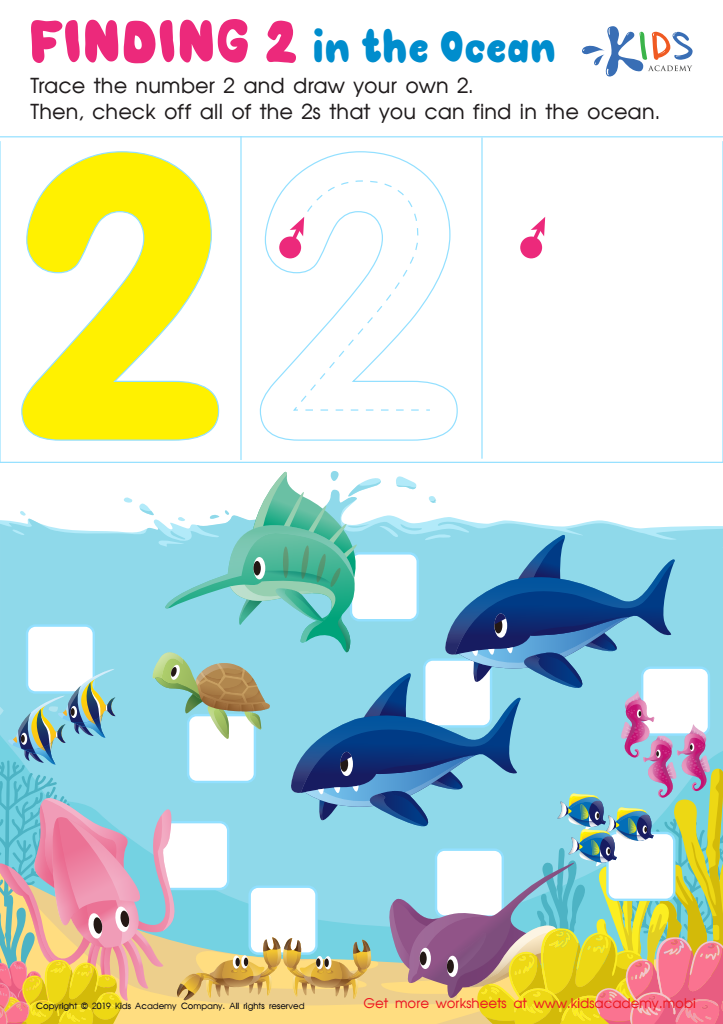

Finding 2: In the Ocean Worksheet
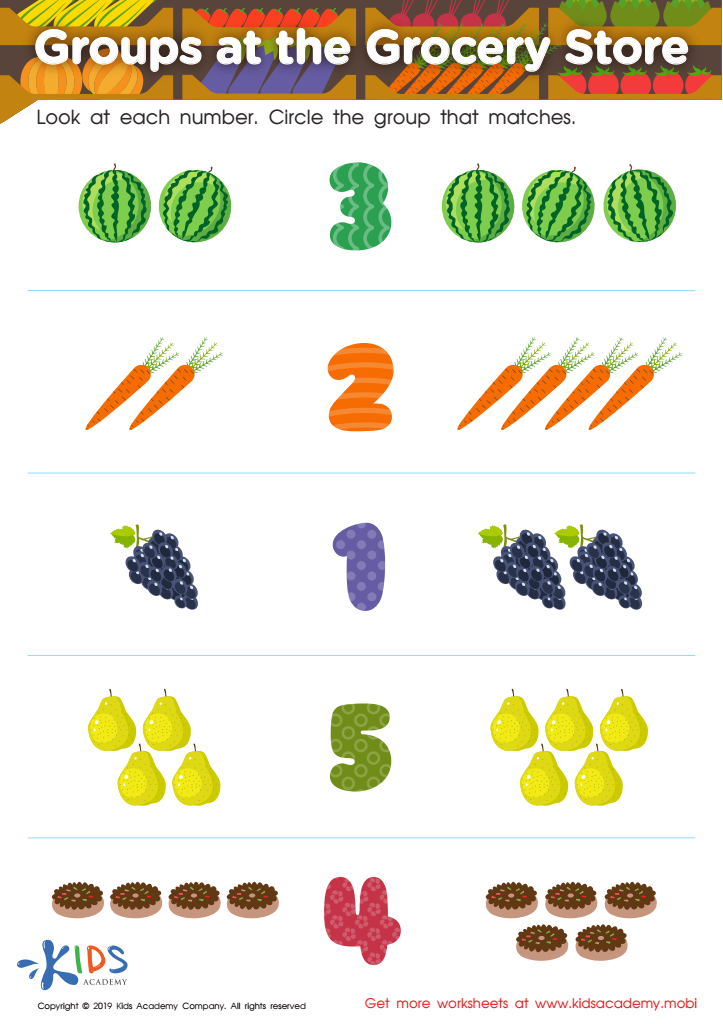

Groups at the Grocery Store Worksheet
Improving counting skills in children aged 3-6 is crucial for their early development and lays the foundation for future mathematical understanding. During these formative years, children are naturally curious and eager to learn, making it the ideal time to introduce foundational concepts in math. By engaging in simple counting activities, children develop number recognition, one-to-one correspondence, and the ability to sequence numbers, all essential for more complex math later in life.
Parents and teachers should prioritize counting skills, as they foster critical cognitive development. Strong counting skills lead to improved problem-solving abilities, logical reasoning, and spatial awareness. Furthermore, these skills enhance a child's confidence and preparedness for structured learning environments, such as school.
Investing time in these early math skills can also promote social interaction, as children often participate in group activities, enabling them to learn alongside peers. Moreover, establishing counting as a fun and interactive experience cultivates a lifelong positive attitude toward math, dispelling fears and anxieties about the subject.
Ultimately, by prioritizing counting skills, parents and teachers not only prepare children for academic success but also contribute to their overall development, encouraging curiosity, persistence, and a love for learning that extends beyond mathematics.
 Assign to My Students
Assign to My Students








%20(1).jpg)










